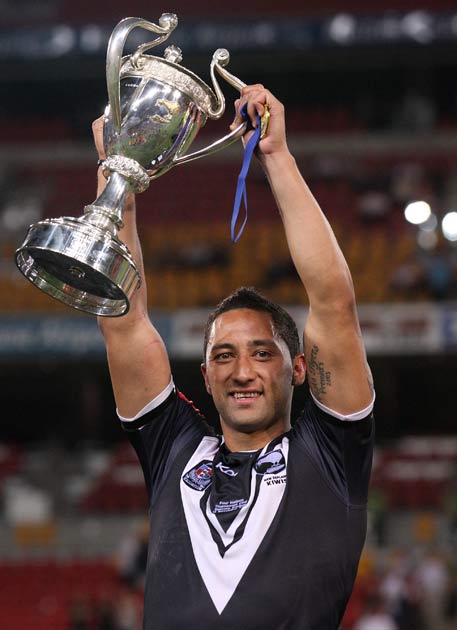Rugby League: The moments of 2010
With 2010 drawing to a close, we asked our sport correspondents to cast their minds back over the last 12 months in their specialist fields to recount their moment of the year.

Your support helps us to tell the story
From reproductive rights to climate change to Big Tech, The Independent is on the ground when the story is developing. Whether it's investigating the financials of Elon Musk's pro-Trump PAC or producing our latest documentary, 'The A Word', which shines a light on the American women fighting for reproductive rights, we know how important it is to parse out the facts from the messaging.
At such a critical moment in US history, we need reporters on the ground. Your donation allows us to keep sending journalists to speak to both sides of the story.
The Independent is trusted by Americans across the entire political spectrum. And unlike many other quality news outlets, we choose not to lock Americans out of our reporting and analysis with paywalls. We believe quality journalism should be available to everyone, paid for by those who can afford it.
Your support makes all the difference.Seconds from the end of the year's final rugby league match came the moment that confirmed New Zealand as the world's leading side and their captain, Benji Marshall, as the game's number one player.
A generally uninspired Australia were less than two minutes from grinding out a victory in the final of the Four Nations in Brisbane. It had not been the most memorable of tournament, certainly not from the point of view of the eliminated English, but Marshall, already responsible for all the Kiwis' creativity, including the try ten minutes earlier that had brought them within striking range, was about to elevate it to a different plane and rescue it from mediocrity.
The Kiwis, heavily beaten by Australia in a group match the week before, were trailing 12-10 when the stand-off chose to run the ball on the last tackle of their set. He found the space to release Shaun Kenny-Dowall on the right touchline, who was supported by Jason Nightingale. Marshall backed-up to take the ball again and, when he sensed that he could not quite make the line, threw it blind in the general direction of Lance Hohaia.
Instead, it ended in the hands of Nathan Fien, who scored the try that won the trophy. Marshall added the goal, just before the hooter sounded, but that hardly mattered.
It had been a triumph for instinct, for a gut feeling of what to do, rather than a cool analysis. If the final pass had been forward, it all happened so quickly that an out-of-sorts referee like Tony Archer could be forgiven for missing that detail. It was a piece of luck that the Kiwis richly deserved and which, following the Tri-Nations in 2005 and the 2008 World Cup, marks them as having their bigger neighbour's number in major tournaments.
It is arguably the first time in the history of the sport that New Zealand can claim to be the world's best, but as the Australian full-back, Billy Slater, said after the match, there is no real doubt now about the legitimacy of that claim.
Marshall has replaced Slater as the world's best player. In the voting after the tournament for the Golden Boot, awarded annually to the game's outstanding individual, he got 11 of the 13 votes, with Kenny-Dowall getting the other two. It is a genuine changing of the guard.
Marshall has also supplanted another Australian as the most influential player in the game, which is a subtly different thing.
The final at the Suncorp Stadium set up a perfect opportunity for a comparison, because Darren Lockyer was playing directly opposite Marshall, at stand-off for the Kangaroos.
So often, against Great Britain/England as well as against New Zealand, it has been Lockyer who has found the moment of inspiration to pull a big game out of the fire.
In Brisbane, he was a peripheral figure, who looked as though he had turned out in one Test too many. It was Marshall, just as in the World Cup final two years earlier, who came up with the moment of magic when it was needed.
The Wests Tigers pivot has tried to bury the myth of him as a purely off-the-cuff player. In fact, he practices things like passing blind obsessively.
You can learn the techniques required. Knowing how and when to apply them is what makes a champion.
He is also fiercely self-critical. After the defeat by Australia the previous week, he apologised to his team-mates for his performance, although he had clearly been their best player.
The other myth he has outlived is that he is not a durable player. Despite three shoulder reconstructions in his early career, he played every game in the NRL last season - and survived being targeted as the main threat in every one of them.
All the signs are that, like Lockyer before him, he will be around to torment opponents for years to come.
Join our commenting forum
Join thought-provoking conversations, follow other Independent readers and see their replies
Comments